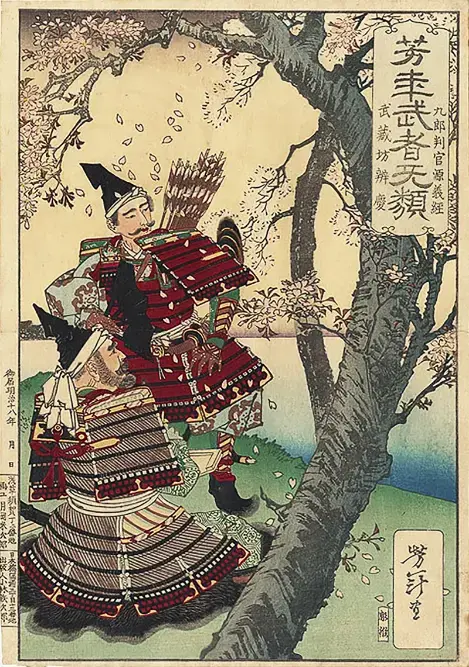Benkei(西塔武蔵坊弁慶)

Saitō Musashibō Benkei (1155–1189), commonly known simply as Benkei, was a formidable warrior monk who lived during the final years of Japan's Heian Period. His remarkable life journey took him from monastic beginnings to mountain asceticism, and eventually to becoming a feared rogue warrior. His legacy was ultimately defined by his unwavering loyalty to the renowned samurai Minamoto no Yoshitsune (also called Ushiwakamaru).
In Japanese culture, Benkei symbolizes exceptional strength and absolute devotion, making him a enduring figure in countless literary works and cultural productions throughout history. Our historical understanding of Benkei comes primarily from chronicles written well after his lifetime, including the Azuma Kagami, The Tale of the Heike, and the Genpei Jōsuiki. These sources describe him rather modestly as one of Yoshitsune's thin monastic attendants, though they do mention that Yoshitsune received protection from a band of unruly warrior-monks near Mount Hiei after escaping the capital—possibly the historical foundation of the Benkei legends.
The more elaborate and dramatic tales associated with Benkei emerged even later in the Gikeiki, a 14th-century text. With no surviving records from Benkei's actual lifetime, historians face significant challenges in separating factual elements from legendary embellishments in his story.


